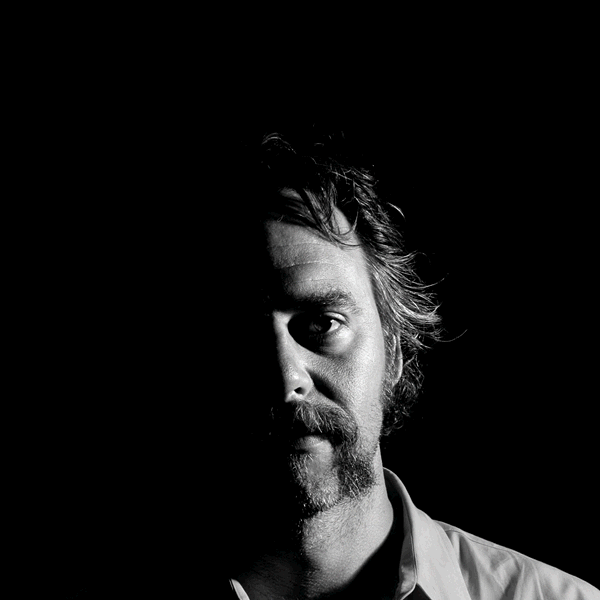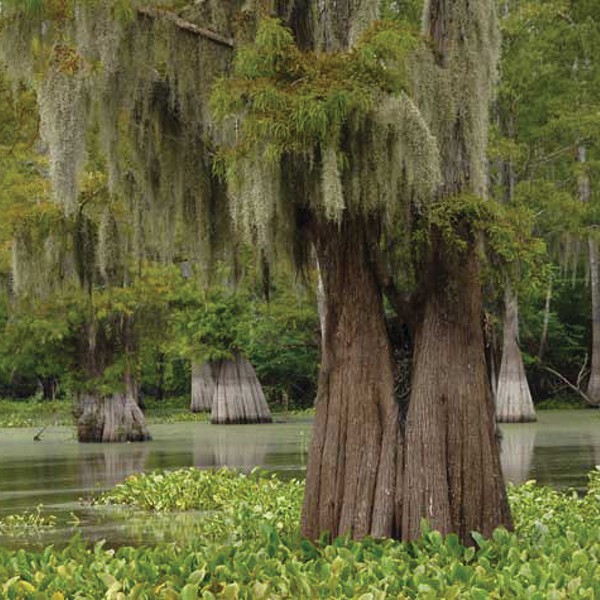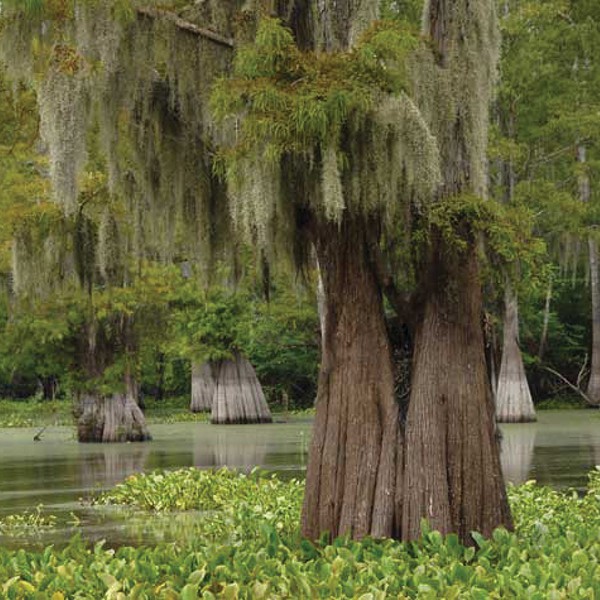There are some writers you don’t interview in a coffee shop. Since National Geographic explorer Jon Bowermaster’s 10 books and eight documentaries recount such adventures as dogsledding both poles, making the first-ever rafting descents of wild rivers in Chile and China, and kayaking 800 miles of Vietnamese coastline, it seems only right to propose a small expedition: a photo shoot at the Saugerties lighthouse.
On the morning of our proposed trek, the sky is awash with rain and crackling thunder. Bowermaster answers his phone cheerfully at 7:15am. and reschedules for afternoon. When we meet at the trailhead, he’s pulling two extra rainjackets from the back of his Landcruiser, “just in case.”
Bowermaster has been to the lighthouse many times, but not overland: He usually kayaks across from the Tivoli Bays. He starts telling travel stories as soon as his feet hit the trail. Last year, he completed his decadelong Oceans 8 project, which he describes as “sea kayaking around the world, one continent at a time, studying the health of the seas and the lives of people who depend on them.” The final voyage is the subject of his latest film, Terra Antarctica, which offers sobering evidence of global warming, with shrinking glaciers and rain-soaked penguin chicks dying in unfamiliar mud. After a sneak preview to benefit the Stone Ridge Library, the documentary premiered at the Blue Ocean Film Festival in Savannah, Georgia, where it was nominated for Best in Festival and won Best Ocean Issues. Bowermaster’s other Oceans 8 films detail expeditions to the Aleutian Islands, coastal Vietnam, French Polynesia, Gabon, Croatia’s Dalmatian Coast, the Andean Altiplano, and Tasmania.
The logistics were fearsome. Each expedition’s crew, including videographers and photographers, had to be expert kayakers. International shipments of gear sometimes went wildly awry: Kayaks bound for Hanoi wound up in Ho Chi Minh City (“like dropping them in Miami when you need them in Boston”) and the Antarctic-bound kayaks were held up in a container strike in Peru, arriving just hours before their polar vessel went south. The six-man crew traveled heavy as well, bringing 50 bags filled with “at least two of everything. If something breaks, you have to have backup,” notes Bowermaster; repair shops do not dot the pack ice.
On some trips, the logistical nightmares were more bureaucratic in nature. The Vietnamese government met Bowermaster’s proposal with a terse “That will be quite impossible.” The journey, described in his 2008 book Descending the Dragon (National Geographic), was memorably accompanied by a karaoke-loving, ocean-phobic factotum named Linh.
During Oceans 8’s 10-year span, its film gear advanced from unwieldy VHS to HD digital. Add computers, portable satellite phones and beacons, Bowermaster says, and “you can be in touch from anywhere.” In November 2008, when the tourist ship Explorer hit an iceberg and sank in the Antarctic Ocean, he and his crew were the first responders. Within 90 minutes, Bowermaster had been interviewed by the New York Times and was doing a live feed on “Good Morning America.” He’s posted Internet dispatches, filed magazine stories, and uploaded photos from around the globe.
But whatever equipment may be available, one ritual remains stubbornly low-tech: Bowermaster writes for an hour every night with a notebook and pen. “Everywhere we go, I’m resolute in sticking with that pen,” he says. Since it’s impossible to take notes while paddling, he’s learned to store up his impressions and let them unfurl in his tent at the end of the day, re-creating sounds, smells, and weather with evocative strokes.
Nothing in Bowermaster’s upbringing suggested the life he now lives. He grew up in a suburb outside of Chicago; both parents were teachers. “We weren’t a traveling family,” he says. “I’ve never been on a plane with my siblings or parents.” Trained as a journalist, with a graduate degree in government and politics, his first book was a biography of five-term Iowa governor Robert D. Ray. His second changed everything.
Bowermaster’s introduction to adventure travel was collaborating with polar explorer Will Steger on his 1989 book Crossing Antarctica (Laurel). As a shakedown cruise, Steger brought the young journalist on a New Year’s Eve hike in the thigh-high snow of his northern Minnesota homestead. “I guess he figured if I could keep up—which I did, barely—I’d be all right,” says Bowermaster. He joined the international team on training trips in Greenland and Canada, and accompanied them on several stretches of their historic journey by dogsled across the seventh continent.
“I started writing about expeditions, then going on them,” he explains. In the introduction to his anthology Alone Against the Sea and Other True Adventures (2004, Lyons Press), he states, “I am a writer, first and foremost. Which makes these stories, and their sharing, the most valuable part of my wanderings.”
Bowermaster’s latest book, Wildebeest in a Rainstorm (2009, Menasha Ridge Press), is subtitled Profiles of Our Most Intriguing Adventurers, Conservationists, Shagbags, and Wanderers. His profiling technique is simple: Spend as much time as possible with your subject. For a Harper’s profile of Native American activist Winona LaDuke, Bowermaster slept on her couch for three days. He learned this approach from legendary rock photographer Jim Marshall. “I asked him how he got that intimacy with people who’d been photographed so often, and he said, ‘It’s about time,’” Bowermaster recalls. “We’ve moved into an era where if you get 30 minutes with someone, you’re lucky. Marshall went on the road with [rock musicians], lived with them, changed their kids’ diapers. When you have that kind of access, people get comfortable. They forget they’re being recorded.”
Indeed. Bowermaster’s long profiles are sometimes so frank that friendships have suffered. “People are more unguarded when they’re being interviewed by someone they know, they feel like you’re just hanging out,” he says, adding ruefully, “Even if the piece is 95 percent positive, that other 5 percent is what they’ll remember. It’s just how it is.”
Bowermaster met his partner, naturalist and photographer Fiona Stewart, on a kayaking trip to an island near Tasmania. “We were there for a big bird migration of short-tailed shearwaters, also called muttonbirds. They’re incredibly noisy and really bad fliers—they’ll use you as a way to stop,” he says. Flinders Island is populated by 800 people and 2.5 million muttonbirds. Bowermaster had contacted a local abalone diver and kayaker about using his house as a base. When the expedition arrived, the diver sent his friend Fiona to check them out. Clearly, she liked what she saw. “It’s really great to be with someone who comes with you,” says Bowermaster, citing the heavy relationship toll of the itinerant life. “Most adventurers have been married and divorced three or four times. The issue’s impossible to avoid. It comes with the territory.”
He admits to spending more time on the road than at home—in his busiest year, he stayed in Stone Ridge only 77 days. His travel essentials include “a comfortable pillow and Tabasco sauce,” the latter because expedition food can be tasteless; some polar explorers subsist on a diet of seal meat and butter sticks. Bowermaster’s favorite expedition meal was smoked fish and a smuggled flask of plum brandy; the worst, “some kind of pig-knuckle thing at an end-of-the-road in Nicaragua.”
Between adventures, he gives lectures and slide shows all over the country. “In places that are far from the ocean, say in the Midwest, I remind audiences that we’re all connected. I’ll ask, ‘Have you ever been for a holiday on the beach?’ A bunch of hands go up. ‘Do you ever eat fish?’ More hands go up. Even if you’re not one of the three billion people within 60 miles of the coastline, you’re involved with the ocean,” he says. “We’re a pretty rapacious species, and we’ve really damaged the ocean. Everywhere we go, we see overfishing, plastic pollution, the impact of climate change—not just rising seas, but more serious storms. We see it everywhere. Everywhere.”
Bowermaster shades his eyes with one hand, squinting up at a northbound line of Canada geese. He wears two silver bracelets over a wristband tattoo, which he got after spending a month on a cargo boat in French Polynesia with a heavily tattooed local crew; the design symbolizes land, sea, and sky. He notes that some tourists get tattoos as souvenirs. “I’ve seen people sell trips to get a tattoo in Antarctica,” he says, shaking his head. “There is no tradition of tattooing in Antarctica. Nor bared skin.”
Though he’s currently working on a collection of profiles of environmental and ocean activists, including Jacques Cousteau’s heirs and Obama’s energy czar Carol Browner, Bowermaster’s also mulling a radical concept for a new book: staying home. The adventurer would spend 365 days without going anywhere, making an exploration of his home base. “There are small towns around the world I know better than my own—I’ve spent more time there,” he says, gazing out at the Hudson as if he’s comparing its slate-blue waves to some of the wild seas he’s seen. “For me, this place says ‘calm.’ I’ve lived here for 21 years. I come home to recharge.”

















